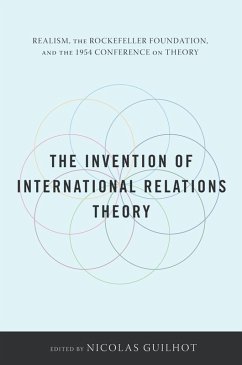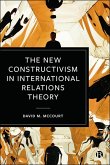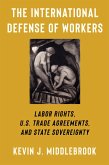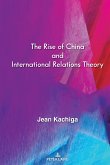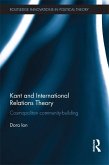The 1954 Conference on Theory, sponsored by the Rockefeller Foundation, featured a who's who of scholars and practitioners debating the foundations of international relations theory. Assembling his own team of experts, all of whom have struggled with this legacy, Nicolas Guilhot revisits a seminal event and its odd rejection of scientific rationalism.
Far from being a spontaneous development, these essays argue, the emergence of a "realist" approach to international politics, later codified at the conference, was deliberately triggered by the Rockefeller Foundation. The organization was an early advocate of scholars who opposed the idea of a "science" of politics, pursuing, for the sake of disciplinary autonomy, a vision of politics as a prerational and existential dimension that could not be "solved" by scientific means. As a result, this nascent theory was more a rejection of behavioral social science than the birth of one of its specialized branches. The archived conversations reproduced here, along with unpublished papers by Hans Morgenthau, Reinhold Niebuhr, and Paul Nitze, speak to this defensive stance. International relations theory is critically linked to the context of postwar liberalism, and the contributors explore how these origins have played out in political thought and American foreign policy.
Far from being a spontaneous development, these essays argue, the emergence of a "realist" approach to international politics, later codified at the conference, was deliberately triggered by the Rockefeller Foundation. The organization was an early advocate of scholars who opposed the idea of a "science" of politics, pursuing, for the sake of disciplinary autonomy, a vision of politics as a prerational and existential dimension that could not be "solved" by scientific means. As a result, this nascent theory was more a rejection of behavioral social science than the birth of one of its specialized branches. The archived conversations reproduced here, along with unpublished papers by Hans Morgenthau, Reinhold Niebuhr, and Paul Nitze, speak to this defensive stance. International relations theory is critically linked to the context of postwar liberalism, and the contributors explore how these origins have played out in political thought and American foreign policy.
Dieser Download kann aus rechtlichen Gründen nur mit Rechnungsadresse in A, D ausgeliefert werden.

